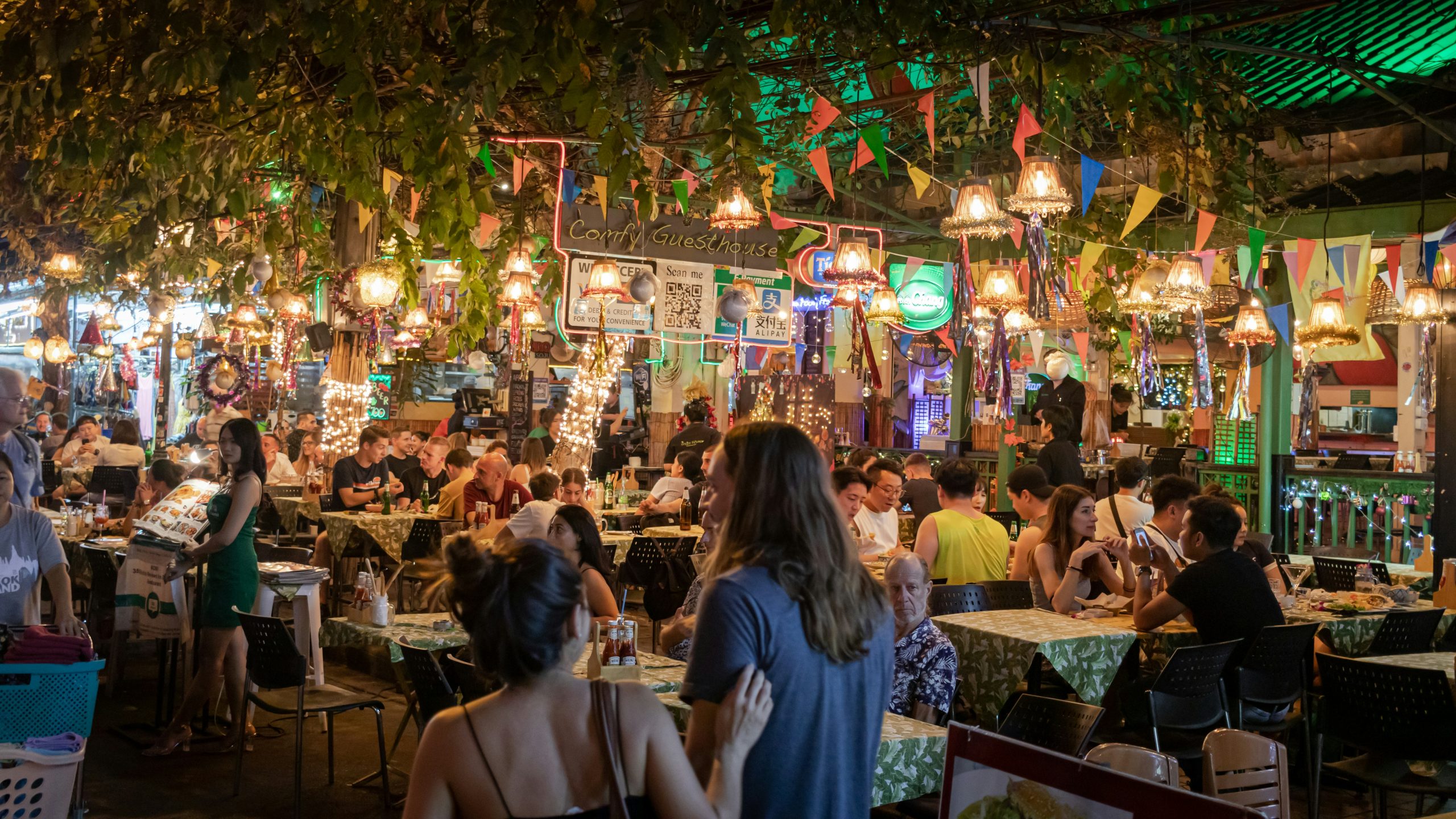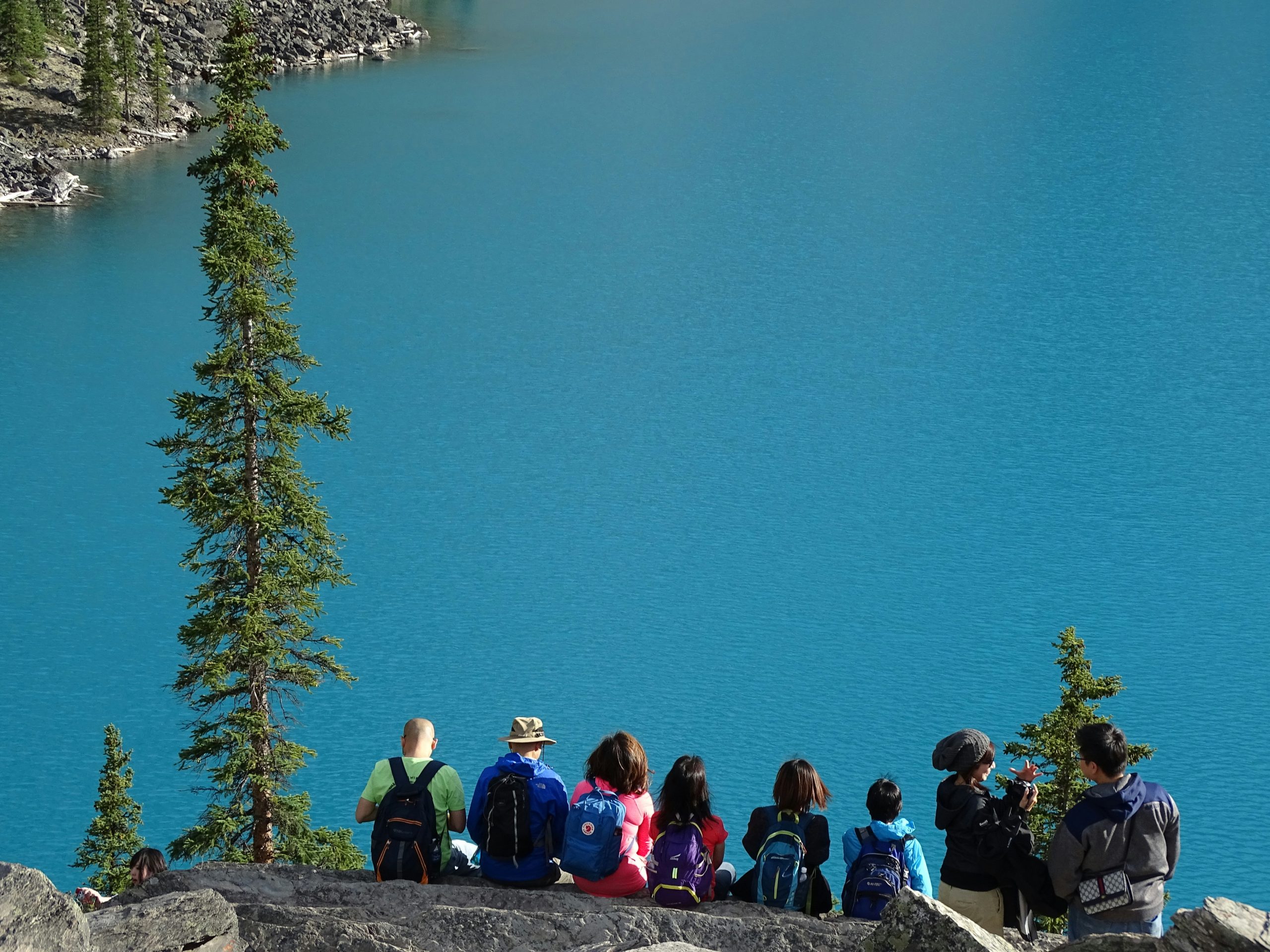Building a Personal Brand in the Tourism Industry: Keys to Professional Success
I want to start by highlighting that, if I had to explain in a few words what personal branding, is, I would say it is the positioning and impression we leave on people. In other words, what do people think of when they hear my name? What topics do they associate me with? What needs would they come to me for? These key questions help define your personal brand. With this clarified, I want to emphasize that nowadays, working on our personal brand, regardless of the sector you are in, is essential not only for positioning but also for marketing your skills and aptitudes, which benefits the services or products you represent, whether you are an entrepreneur or an employee. In the tourism sector, where the customer experience is paramount, a strong personal brand not only positions you as an authority in the field but also allows you to connect more meaningfully with your audience and stakeholders, generating valuable connections. Whether you are an investor, entrepreneur, or founder of a new project, having a well-defined personal brand will be useful for attracting clients and partners, thanks to the connection that this strategic group of people can provide. Working on your personal brand not only
Pop-Up Restaurants: Reinventing the Culinary Experience
In every industry, innovation is key to diversifying market offerings and competition, as well as meeting the needs, demands, and expectations of today's consumers. While it is true that the technology industry, with notable examples like Apple, Tesla, Microsoft, and Samsung, is a major player in constant innovation, the service and consumer sector also stands out. In fact, in 2023, this sector ranked fourth in innovation. Today, we explore innovative proposals in the gastronomy sector that satisfy needs beyond the palate. For some time now, proposals have emerged that aim to offer unique and unconventional experiences. This gave rise to the famous "pop-up restaurants," where people can not only enjoy a meal but also engage socially in a temporary and exclusive setting. Although not a new concept, pop-up restaurants have evolved to offer once-in-a-lifetime experiences. Brands are tasked with continually innovating their offerings, and renowned chefs have joined this trend, creating events that are sometimes clandestine and at other times highly exclusive. The essence of pop-up restaurants is to offer a creative and temporary culinary experience. This demand can be summarized into three irresistible pillars for the public: Innovation: The main axis of the entire experience, aiming to offer something unique and
The Fusion of Innovation and Tourism: Inspiring Success Cases
It is no secret that the main pillar for the growth of any business is innovation. In recent years, we have witnessed the rise of artificial intelligence due to its accelerated growth. Innovation and tourism go hand in hand, improving and simultaneously generating new products, services, and experiences to meet new demands. For example, customer service optimization has seen the emergence of chatbots as allies, and mobile applications now optimize time in hotels for bookings, cancellations, or modifications. In this context, I want to share the success story of Zoku, which emerges as one of the rising trends in the hotel industry due to the increase in modern nomads and remote workers seeking flexible and comfortable spaces to stay, work, and socialize. Zoku took advantage of this demand by offering a business model that caters to people who frequently travel for short and long periods and need a place that fits their lifestyle and needs, considering that conventional hotels do not always meet these requirements due to factors like cost and lack of privacy, among others. Zoku addresses this market niche with a new concept of a hotel and coworking space. Designed as lofts, their spaces are spacious and functional, easily transforming
Emerging Destinations for Adventure Tourism in 2024
Tourism is an activity with reciprocal benefits for both the visitor and the destination country. According to Statista, the tourism industry is responsible for creating over 290 million jobs, both direct and indirect. Despite being affected globally by the Covid-19 pandemic, the sector's recovery has surpassed predictions. According to the UN World Tourism Organization, considering 2023 data, international tourism is expected to reach pre-pandemic levels in 2024, attributed to market recovery. Top Destinations Among the most popular regions, Europe leads as the most visited destination, followed by the Middle East and Asia Pacific. Based on these findings, I want to share the countries emerging as adventure tourism destinations in 2024, according to the latest rankings. As mentioned earlier, Europe continues to lead as the most visited continent, with France topping the list. France receives up to 77.5 million travelers annually, according to National Geographic. Besides the famous city of love, Paris, France offers diverse attractions with its historical, artistic, and cultural heritage. Following France is Spain, which stands out for its diversity in monuments, culture, and gastronomy, along with its coasts, beaches, and fishing villages. In Latin America, Mexico is emerging as a growing destination. According to Forbes, by February 2024, international tourism in Mexico
Tourism as a Tool for Marine Conservation
Tourism is one of the sectors with the greatest opportunity for growth and expansion, but it is also vulnerable to various challenges, such as natural disasters and unforeseen events like the COVID-19 pandemic. However, today I want to highlight the relevance and popularity of sustainable tourism, especially its influence on marine conservation. Does Sustainable Tourism Exist? If you are a regular reader, you will know that we have often referred to contemporary society as environmentally conscious consumers. This is confirmed by a note published by the German online statistics portal Statista, citing that approx 44% of respondents consider environmental protection one of the most important issues for their country. According to 2022 estimates, the sustainable tourism market was projected to grow annually by 33.3%, suggesting that by 2024, the percentage much be higher. Sustainable tourism involves respectful tourism activities that generate minimal environmental impact. How Does Marine Conservation Contribute to Sustainable Tourism? The reality is that, according to the Ocean Panel, coastal and marine tourism represents at least 50% of global tourism. This is largely attributed to the quality of ecosystems, which are crucial for attracting visitors. This presents a significant opportunity for countries, especially in the Caribbean, where tourism demand is primarily focused
Why Japan and Colombia Should Be on Every Food Lover’s List 2024
Tourist destinations not only offer entertainment and an immersion into different cultures but also represent an opportunity to explore and enjoy local cuisine. As Confucius said, "To know how to eat is to know how to live," and on these journeys, you never stop learning
Space Tourism: The New Luxury Experience
Space tourism is emerging as an exciting adventure for those seeking unique and luxurious experiences. While currently only a privileged few can afford the millions of dollars required for these trips, it is expected that over time and with technological advancement, costs will decrease, thus democratizing access to space. Companies like Virgin Galactic, led by Richard Branson, are at the forefront of this field. Their spacecraft, V.S.S. Unity, took a crew to the edge of space in July 2021, offering passengers an unparalleled view for a few minutes. In addition to Virgin Galactic, companies like Blue Origin, founded by Jeff Bezos, are also making significant advances in space tourism. With the New Shepard, a suborbital rocket, Blue Origin is bringing the dream of space closer to reality for the general public. Their ongoing advancements and research are paving the way for expanding access to space, offering new opportunities to explore the cosmos. Space tourism is constantly evolving, promising to open the doors of the cosmos to a wider audience in the future. Although currently the cost of these experiences remains limited to most, technological advances and competition in the sector could eventually make space accessible to everyone. However, beyond the numbers, an intriguing
Gender Equality: Key to an Inclusive Economy
The inclusion of female leadership in the workplace is crucial for promoting gender equality and fostering innovation. Female leaders not only bring a unique perspective but also inspire others to achieve their professional goals, thereby driving economic independence. Despite progress, gender gaps persist in many countries. In Mexico, for example, women's labor participation was only 45% compared to 77% for men in 2022, according to a World Bank report. This underscores the importance of continuing to work towards promoting equal opportunities. Companies that promote the inclusion of women in all areas of work experience various benefits, such as better talent retention, more equitable policies benefiting all employees, and greater diversity in the workforce, which helps prevent gender, racial, and sexual discrimination. Furthermore, these benefits also translate into positive economic aspects for countries, such as an increase in per capita income and greater economic growth. How does this topic remain relevant today? Despite efforts to close gender gaps, there is still much work to be done. The inclusion of female leadership remains a priority for building a fair, equitable, and prosperous workplace for all.
The Current Dilemmas of the Gastronomic Sector
In the vast world of gastronomy, where flavors intertwine with experiences and opportunities, a challenging panorama emerges. From the influence of new policies to changing trends in consumption and the effects of climate change, enthusiasts in this sector must do more than just be prepared; they must adapt to consider new innovations that allow them to thrive amid constantly evolving challenges. Impact of Healthy Taxes and Single-Use Plastic In some countries, rather than merely requesting, the implementation of measures to promote sustainability, such as regulation on single-use plastic, has been demanded. This has led to a series of financial adjustments in the gastronomic sector, especially in countries like Colombia. Although these measures aim to promote more environmentally friendly practices, the reality is that even the smallest changes can have a significant impact on the operating costs of establishments. Faced with this panorama, entrepreneurs face the challenge of balancing the adoption of these measures with profitability, while also maintaining attractive prices for consumers. It is essential to develop strategies that allow compliance with regulations for a greener future, without compromising the economic viability of businesses. The Rise of Conscious Eating The current consumer trend has undergone a significant change, and the gastronomic sector is no
Sustainable Tourism in 2024: An Opportunity for Innovation and Attraction
Sustainable tourism is a growing trend in today's world, and this year is shaping up to be a period full of innovations and conscious experiences for travelers who wish to enrich themselves while respecting the environment they explore. Below, I present two key trends in conscious tourism that could inspire your next trip. Opting for the use of platforms for sustainable travel: One of the most prominent ways in which travelers can embrace sustainable tourism is through the use of specialized platforms. Faced with the increasing demand for accommodation alternatives beyond traditional hotels, Ecobnb emerges as a solution for conscious travelers who want to minimize their environmental footprint during their stay. This platform offers a wide range of sustainable accommodation options, from charming cabins in natural settings to modern eco-friendly houses. With an intuitive interface similar to Airbnb's, Ecobnb allows users to easily select their desired destination, dates, and number of people to consider. In addition to facilitating booking, the platform actively promotes the reduction of CO2 emissions and water savings, turning each experience into a positive act for the planet. One step further: regenerative tourism: On the other hand, there is regenerative tourism that goes beyond traditional sustainability, seeking not only to minimize










